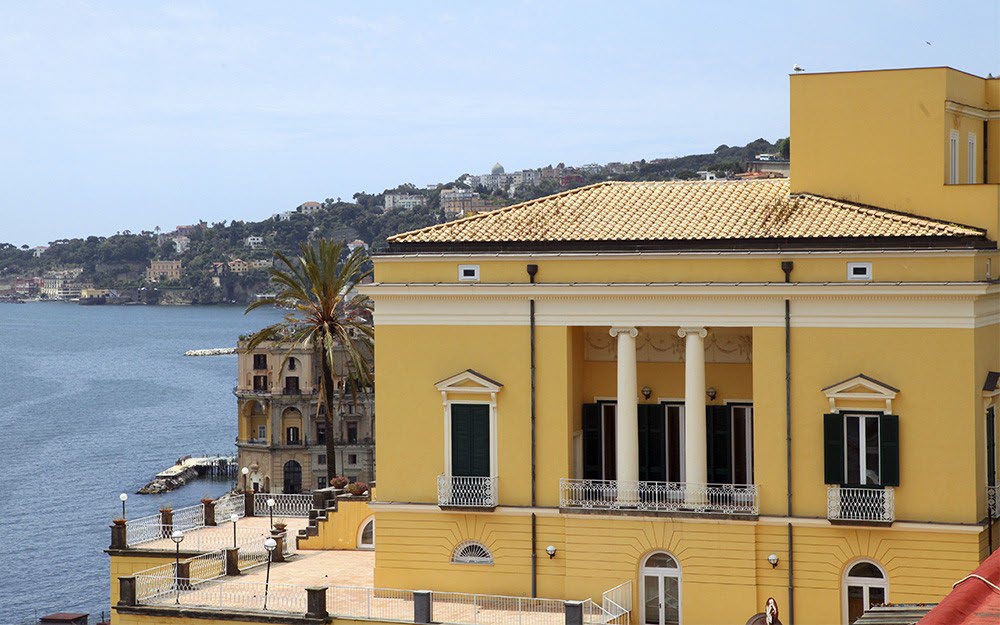
80123 Napoli


Villa Doria d’Angri is indeed one of the most important Italian neoclassical villas. It stands prominently on a tuffaceous spur of the Posillipo hill and was commissioned by Prince Marcantonio Doria d’Angri, the last prominent figure of the noble Doria family of Genoese origin. The villa was designed to be a dignified leisure residence befitting the prince’s prestigious role at the time.
Originally a farmhouse, the Doria property was acquired by the noble family in 1592 through a donation from Vittoria Carafa. Architect Bartolomeo Grasso transformed it into a neoclassical princely residence, completing the construction in 1833.
The villa’s conversion was not only a representation of the Dorias’ social status but also a nod to their seafaring traditions.
Following Prince Marcantonio’s death in 1837, the villa was rented out and subsequently sold in 1857 to English noble Ellinor Giovanna Susanna Maitland. Since 1998, Villa Doria d’Angri has been owned by the University of Naples Partenope. It served as a panoramic villa, providing a serene alternative to city living, while the extensive 18,000-square-meter park surrounding the villa features paths and ramps that ascend the hill.
The villa’s architectural highlights include a beautiful terrace encompassing the entire structure, two loggias with four Ionic columns each, and side terraces designed as hanging gardens with water features and fountains. A notable addition is the octagonal Chinese pagoda, situated on a circular bastion emerging from a tufaceous rock. This distinctive feature, created by Antonio Francesconi, intentionally contrasts with the architecture of the main villa to draw attention.
In 1880, Villa Doria d’Angri hosted the renowned composer Richard Wagner for several months. During his stay, Wagner continued to work on his final opera, “Parsifal,” and wrote his autobiographical book, “My Life.”
On May 22, 1880, maestro Joseph Rubinstein premiered the first act of “Parsifal” on the piano in the patio facing the Salone della Villa. The room where Wagner stayed, known as the Hall of Mirrors, has since been referred to as the “Wagner Room.”
Since 1998, Villa Doria d’Angri has been under the ownership of the University of Naples Parthenope. It is now used for higher education, hosting national and international scientific conferences, and cultural gatherings.
Additionally, the villa houses a valuable collection of static ship models, merchant and military vessel parts, nautical instruments, and equipment, which are preserved in the Naval Museum.
Make a tour of
Villa Doria d’Angri